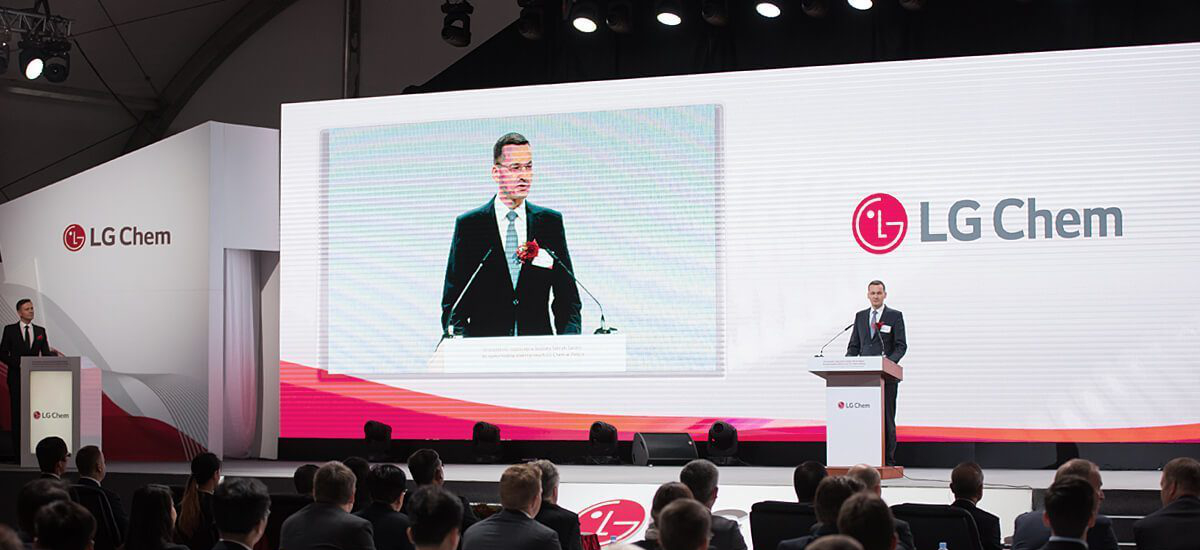
 Your Credit Estimate
Your Credit Estimate
 Your Credit
Your Credit
Your zip code helps us provide you with the most accurate vehicle pricing and vehicle availability.
We estimate your credit score to give you an idea of your monthly payments. To get an accurate payment amount, complete our credit application by clicking the Start Credit Application button below.
start credit application
Automakers all over the world are in competition for the next best all-electric vehicle. Ever since Tesla broke through the glass ceiling of alternative fuel vehicles and showed the world that consumers can have luxury vehicles while also being eco-friendly, automakers have been working to do the same. Automakers like Chevrolet have already given Tesla a run for their money with the Chevy Bolt EV, even better than the Tesla 3. Another way to get ahead of the curb is to invest in other businesses and startups that already have a working system versus spending millions in Research & Development. Fiat Chrysler Automobiles recently signed a contract with ENGIE and Enel X, where FCA will be installing approximately 700 Enel X charging stations at FCA Italian plants in exchange for help with EV charging solutions. The latest development comes from LG Chem, confirmed to be working with many automakers, FCA included.
“LG” should be a commonly known household name, manufacturer of all kinds of electronics, from cell phones and computers to simple electric appliances. When it comes to LG Chem, the company is one of the leading producers of lithium-ion battery cells for electric vehicles (EVs). The South Korean electric battery producer has begun working on a potential $1.7 billion-dollar US battery cell factory. With an already operating a battery factory in Michigan, LG Chem is looking to expand as it helps to support the growing electric vehicle market.
“LG Chem, one of the leading EV battery makers in the world that counts General Motors and Volkswagen among its customers, is weighing investing about 2 trillion won ($1.70 billion) in the plant that could begin production in 2022, one of the people said. Kentucky and Tennessee are among the candidates for the plant’s site...” – Reuters
When and if LG Chem builds the new factory, Volvo, FCA, and potentially Hyundai Motor, GM, and Volkswagen would all be automakers on the list as customers to get the new battery cells. As usual, this does come with competition. Another Korean battery manufacturer, SK Innovation, is building a new EV battery factory in the US and currently supplies lithium-ion batteries to automakers Mercedes-Benz, Hyundai Motor, and Kia Motors. Even traditional electronics makers, car companies, and tech giants, including Panasonic, Samsung, LG Chem, Toshiba, Google, BMW, and Dyson are working on ways to make lithium-ion batteries more powerful. Fisker in Los Angeles, Panasonic in Tokyo, Contemporary Amperex Technology (CATL) in China, Dyson in England, QuantumScape in California, and Romeo Power, also in Los Angeles – they’re all focusing on developing more efficient batteries to become the dominating company and have a hold on the electric vehicle market.
Either way, many analysts say that alternative fuel vehicles like hybrids, plug-in hybrids, and EVs will take over the auto market by 2025. On a global level, there has been a 50-60-percent growth of hybrid and electric car sales, with about 150 million EV units sold worldwide and over 100 million hybrid vehicles sold worldwide. It will still take a decade or two for gasoline vehicles to be replaced by a new electric fleet, but with well-known companies making investments and new startups popping up, it’s only a matter of time.
Looking for your own electric vehicle? NowCar makes shopping for a car easier online and has plenty of options for hybrids, plug-in hybrids, and electric vehicles.